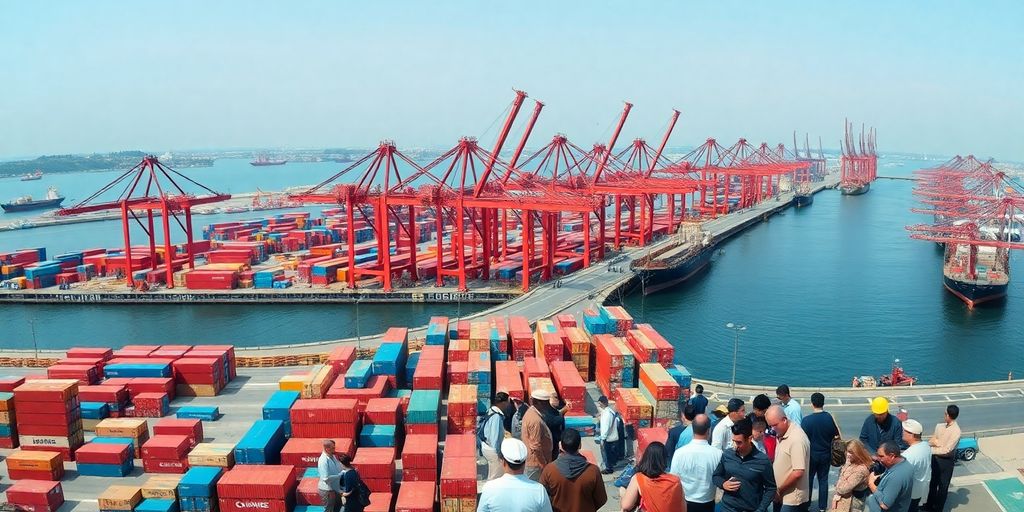Trump’s Tariff Threats Ignite Trade Tensions with the EU

U.S. President Donald Trump has reignited trade tensions with the European Union (EU) by threatening to impose tariffs on imports from Europe and China. This move has prompted the EU to prepare for a potential trade conflict, as officials express readiness to defend their economic interests against U.S. actions.
Key Takeaways
- Trump threatens 10% tariffs on Chinese imports and 25% on Canada and Mexico.
- The EU is preparing retaliatory measures to protect its industries.
- Trade tensions could lead to a shift away from free trade principles in Europe.
Overview of Trump’s Tariff Threats
In a recent press conference, President Trump reiterated his commitment to imposing tariffs on the EU, citing unfair trade practices and significant trade surpluses. He stated, "The European Union is very, very bad to us. So they’re going to be in for tariffs. It’s the only way … you’re going to get fairness."
Trump’s administration is also considering a 10% punitive duty on Chinese imports, linking it to the trafficking of fentanyl from China through Mexico and Canada. This announcement has raised concerns among European officials, who fear that such tariffs could disrupt the already fragile global trade environment.
EU’s Response to Tariff Threats
The EU has expressed its determination to defend its economic interests. Valdis Dombrovskis, the EU’s economy commissioner, stated, "If there is a need to defend Europe’s economic interests, we are ready to do so." This statement reflects the EU’s commitment to maintaining a rules-based trading system while preparing for potential retaliatory measures.
Potential Retaliatory Measures
The EU is considering a range of options in response to Trump’s tariff threats, including:
- Targeted Tariffs: Imposing tariffs on specific U.S. products, particularly those from politically sensitive states.
- Increased Trade Partnerships: Strengthening trade agreements with other countries to diversify its economic relationships.
- Support for Domestic Industries: Implementing measures to protect vulnerable sectors within the EU from the impact of U.S. tariffs.
The Economic Implications
The potential for a trade conflict between the U.S. and the EU raises significant economic concerns. A trade war could lead to:
- Increased Costs for Consumers: Higher tariffs may result in increased prices for imported goods.
- Disruption of Supply Chains: Companies relying on transatlantic trade could face operational challenges.
- Economic Slowdown: A prolonged trade conflict could negatively impact economic growth in both regions.
Conclusion
As Trump prepares to implement his tariff policies, the EU is bracing for a potential trade conflict. The situation underscores the delicate balance between protecting domestic industries and maintaining free trade principles. Both sides will need to navigate these tensions carefully to avoid a detrimental trade war that could have far-reaching consequences for the global economy.
Sources
- Trump delivers fresh tariff threats against EU and China | Reuters, Reuters.
- Trump’s tariff threats push Europe to gear up for trade fight | Mint, mint.
- EU ‘ready to defend’ interests after Trump tariff vow, RFI.
- EU ‘ready to defend’ interests after Trump tariff vow – Latest News, Hürriyet Daily News.
- Trump’s Tariff Threats Push Europe to Gear Up for Trade Fight – WSJ, WSJ.








Responses